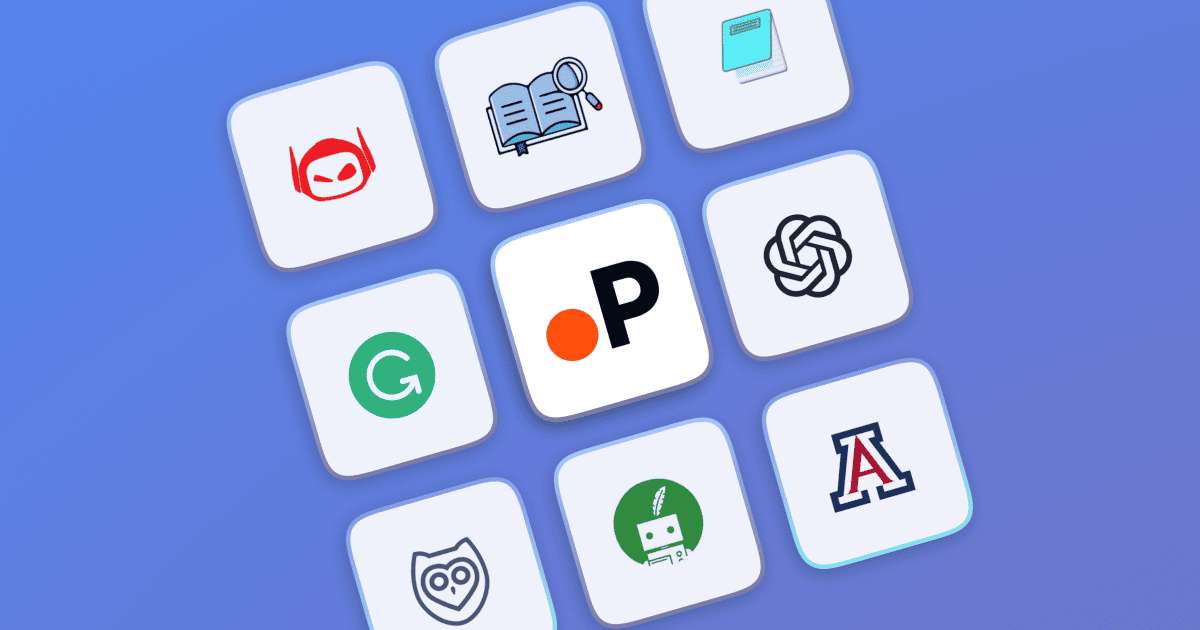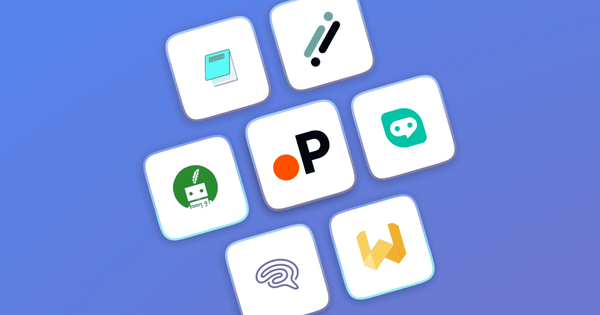Online AI Writing Software in PhD Education: Ethics and Best Practices

Getting a PhD degree is a challenging endeavor that demands meticulous attention to detail throughout the process, especially when it comes to writing research and other academic papers. For PhD in Education students, AI writing software can serve as a helpful resource to enhance efficiency and productivity. The use of this type of technology, however, must be approached with utmost care and a sense of responsibility.
As revealed in a recent study, 38% of educators are concerned about the lack of guidelines on the use of AI tools in education, which can lead to student misuse that can result in ethical issues. These challenges can be avoided. In this article, we’ll explore how you, as a PhD student, can responsibly and effectively use AI writing tools while maintaining the integrity of your academic work.
What is the role of AI writing software in PhD education?
There is no denying that AI is now embedded in academia, particularly in higher education, where students increasingly rely on AI tools, such as AI writing software, to meet their academic requirements. The use of AI tools in higher education has actually produced positive outcomes.
In a 2023 survey by Pearson, 51% of U.S. college students reported that generative AI had helped them achieve better grades. But while these tools can be incredibly useful for tasks like grammar, structure, and overall writing mechanics, it's still important to remember that they are mere tools. They can assist in improving writing strategies for students, but they should never replace critical thinking, analysis, or creativity, which are essential in academic work.
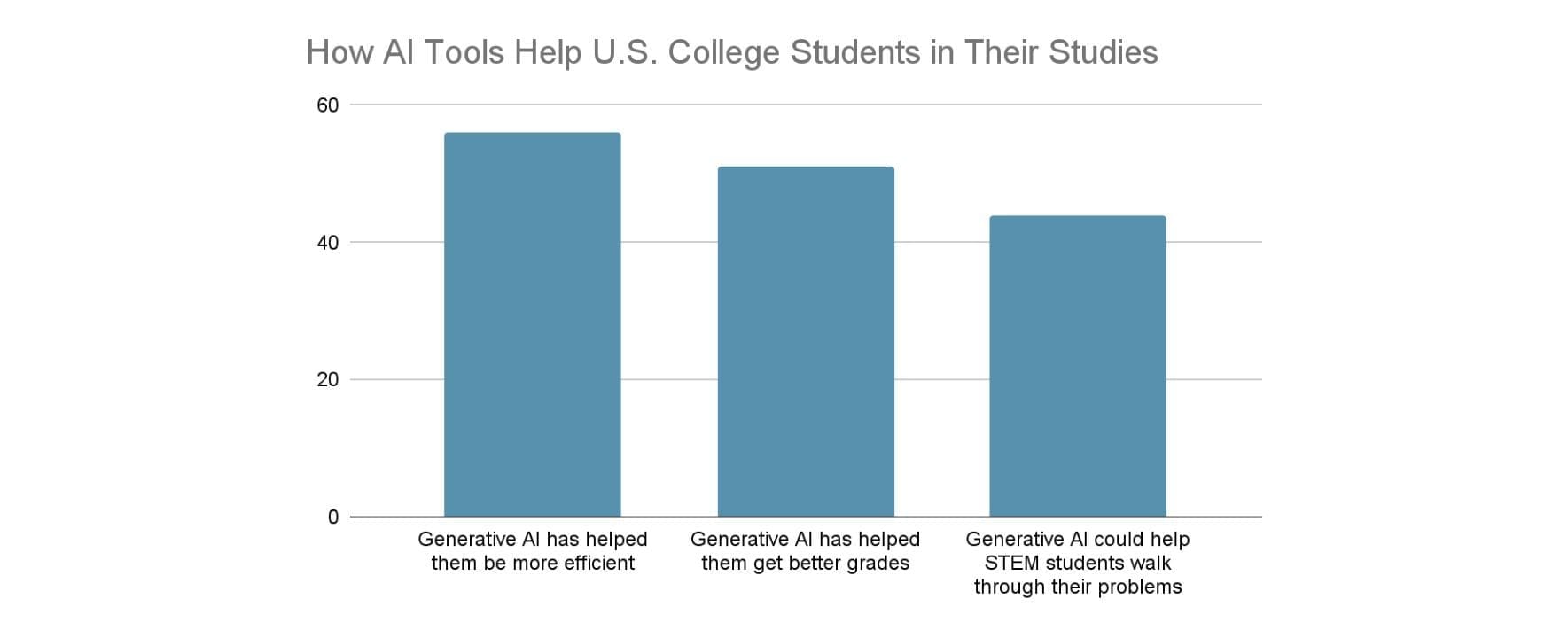
What are the ethical considerations when using AI writing software?
AI writing tools can help make academic writing less demanding by providing greater convenience. While this idea can be very appealing to PhD students, it's still important to consider the ethical implications of using these tools in academic work.
According to recent data from Turnitin, about 11% of more than 200 million papers submitted to the platform since 2023 contained at least 20% AI-generated content. This equates to over 22 million academic papers, which brings the growing use of AI in academia to attention and emphasizes the need for more responsible and ethical use of this technology.
Here are some ethical considerations when using AI writing software ethically in your PhD research:
Maintain Transparency
One important ethical consideration when using AI writing software is transparency. If you use AI tools to enhance your work, it’s essential to be upfront about how you’ve employed these tools.
While you may not need to disclose every software you used for spell-checking, using AI to generate ideas, paraphrase, or refine large sections of your work could be more ethically ambiguous. In such cases, it might be appropriate to mention your use of AI tools in your acknowledgments or methodology.
Being transparent in your process doesn’t diminish your work; instead, it shows that you’ve approached the writing process thoughtfully and ethically.
Protect Intellectual Property
Another key ethical consideration is safeguarding intellectual property. While AI tools can assist in refining and enhancing your work, it's essential to ensure that the content remains your own. Some AI platforms may store user data or retain access to drafts and documents you generate, which could raise concerns about the ownership of your ideas.
Always review the privacy policies and data-handling practices of the AI tools you use to avoid unintended risks to your intellectual property. By taking these precautions, you can ensure your original ideas and research remain protected and properly attributed.
Avoid Over-Reliance on AI Tools
One potential drawback of AI writing software is the temptation to rely on it too heavily. A clear example comes from the same Turnitin report, which found that roughly six million papers submitted since 2023 were composed of at least 80% AI-generated content. While it may seem convenient to allow an AI tool to restructure or reword entire sections of your paper, this can lead to a lack of depth and critical thinking.
It's important to remember that your PhD journey is about developing your analytical and problem-solving skills. Instead of relying on AI to improve technical aspects of your work like grammar and structure, you must stay actively engaged with your content to ensure your work genuinely reflects your intellectual efforts and insights.
AI tools like Paperguide are capable of suggesting improvements, but they should be used as supplementary aids, not crutches. You want to ensure that the final product reflects your intellectual effort, rather than just being a polished version of AI suggestions.
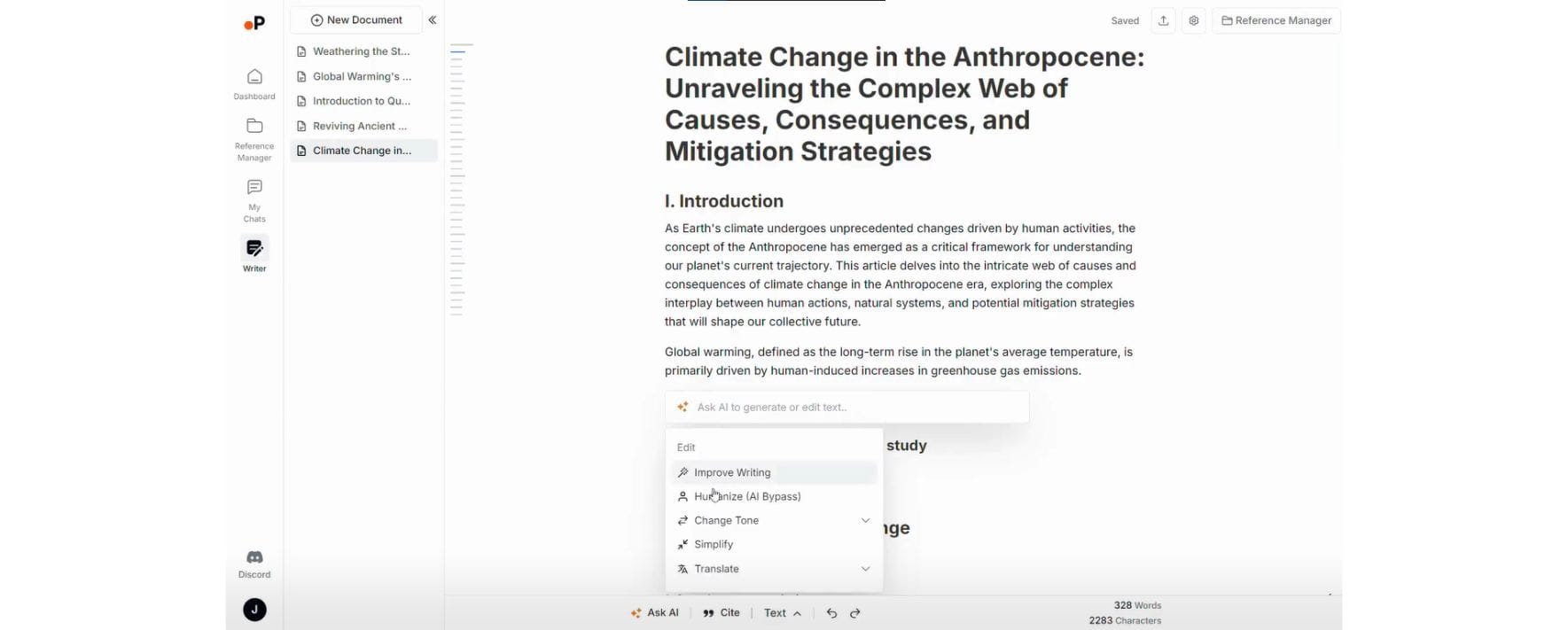
What are the best practices for using AI writing software in your PhD journey?
With these ethical considerations in mind, here are some best practices for integrating AI writing tools into your PhD work effectively and responsibly:
Use AI Tools for Grammar and Style Improvements
Grammar and style play a crucial role in the effectiveness of academic writing. AI writing software is particularly useful for catching errors that can be easily missed when you're concentrating on larger ideas. These tools can help ensure your writing is clear, concise, and grammatically correct, all while adhering to the ethical standards of academic integrity.
For instance, Paperguide offers a smart rephrasing feature that enhances clarity and originality without altering the meaning of your text. Such tools allow you to fine-tune your writing, ensuring that your message is communicated as effectively as possible while maintaining the integrity and originality of your work.
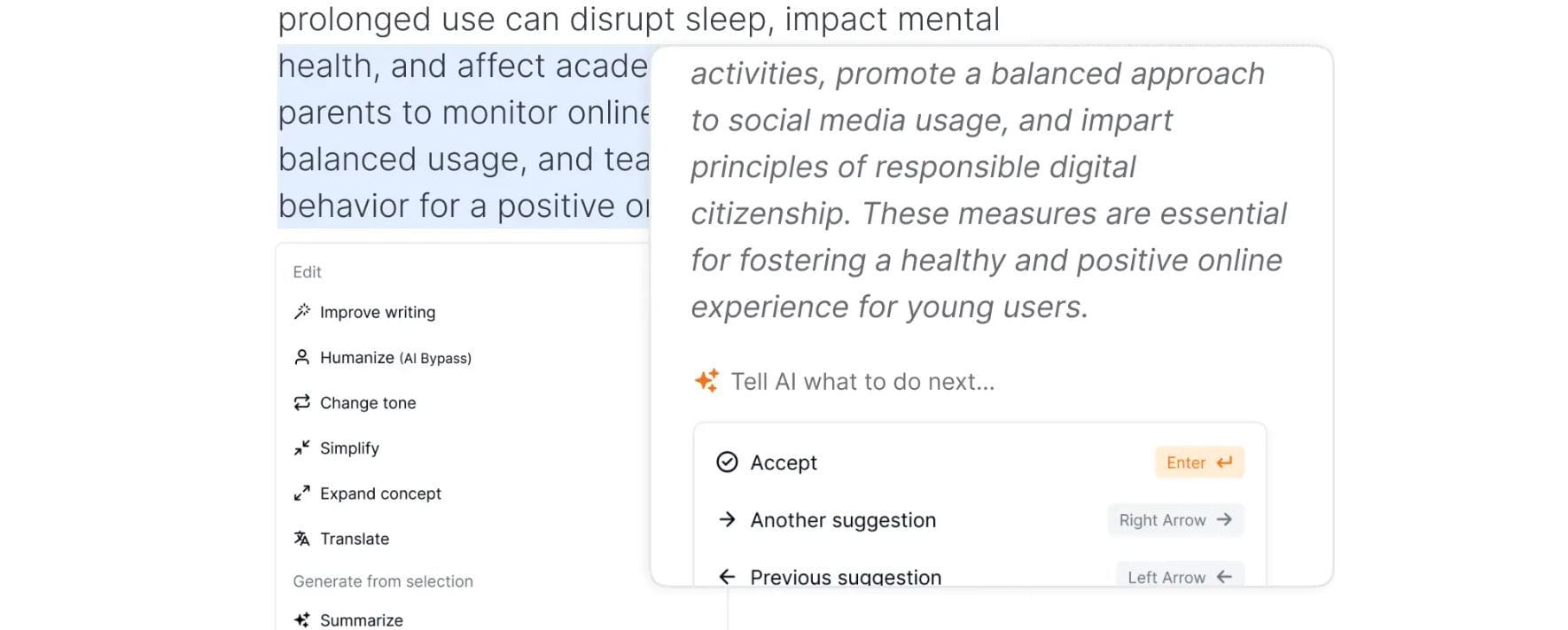
Create Outlines and Organize Your Thoughts
Even for PhD students, one of the toughest challenges in academic writing is often just figuring out where to begin. AI writing software can assist by generating outlines based on your research, providing a structured framework to help organize your thoughts. While the core ideas and research must come from you, these tools can simplify the outlining process, ensuring your work is logically structured.
For instance, Paperguide offers a feature that can automatically create an outline for your project, making it easier to approach your writing with a clear direction.
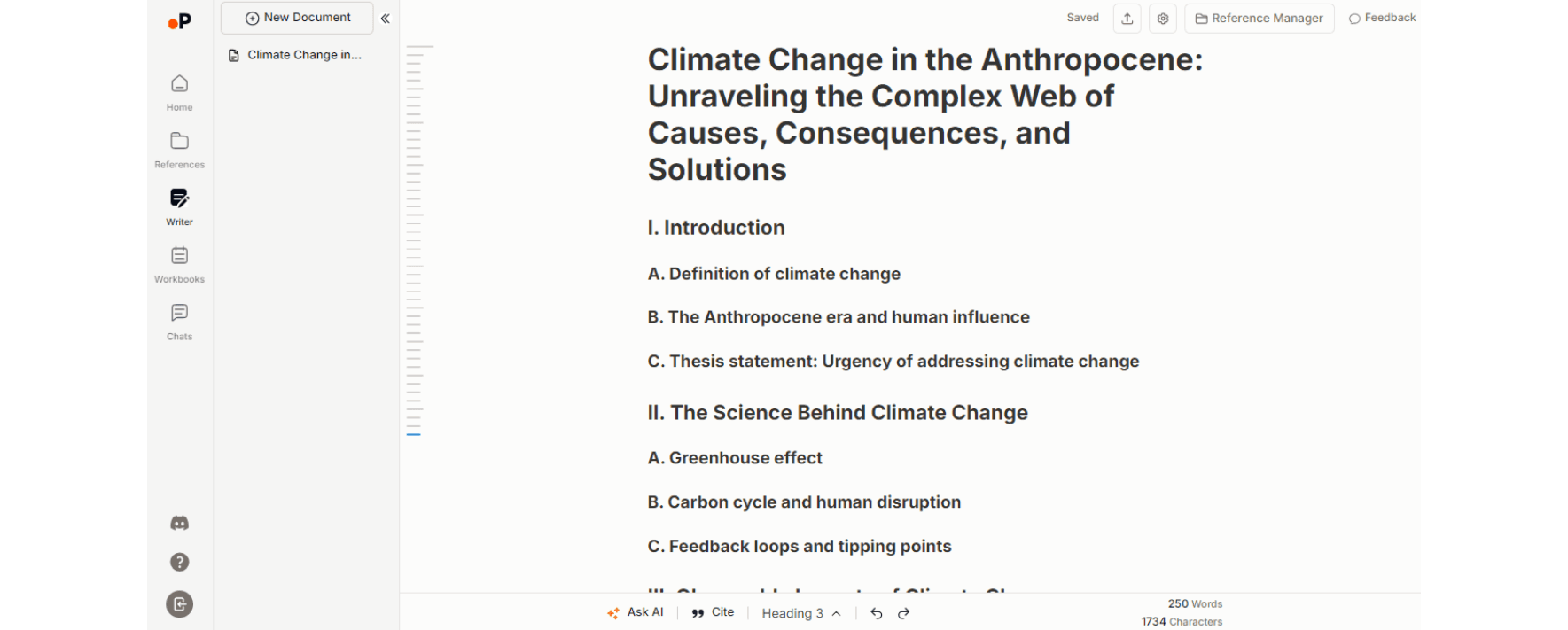
Leverage AI for Citation and Reference Management
Citations are a crucial aspect of any PhD work, and AI tools can greatly simplify citation management. Maintaining proper citation practices is essential for upholding academic integrity and avoiding plagiarism. Many AI writing tools, including Paperguide, offer features that automatically generate citations in the correct format and check for potential plagiarism.
With Paperguide, you can even search for online papers directly within the platform and easily add the sources you want to cite to your reference list. This not only saves valuable time but also ensures your work meets the highest standards of academic accuracy and integrity.
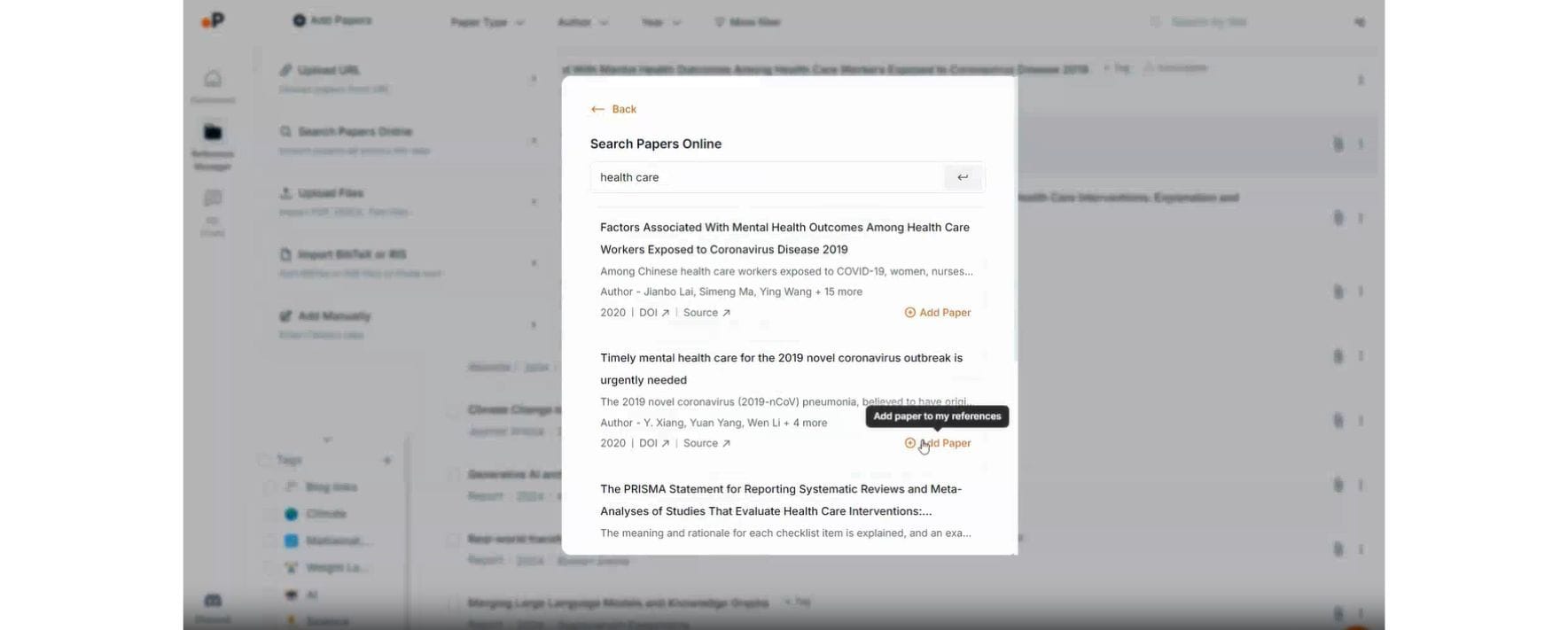
What is the impact of using AI in academic writing skills?
The integration of AI tools in academic writing has had a notable impact on improving students' writing abilities. A research study conducted by Malik et al. explored the use of AI in essay writing from the perspective of college students, revealing that AI technologies positively influenced their skills.
According to the study, 37.2% of participants agreed or strongly agreed that AI tools had enhanced their general writing abilities. These tools help students develop better grammar, structure, and clarity, contributing to an overall improvement in their writing competence.
While not all AI writing software is created equally, platforms like Paperguide stand out by helping students polish their work, ensuring their ideas are clearly and effectively communicated. This tool provides an ethical and efficient solution for navigating the complexities of academic writing, especially for students balancing the demands of traditional or online PhD courses alongside their research.
Embracing AI Tools While Staying Ethical
As a PhD student, you are responsible for conducting research that advances your field and demonstrates your expertise. AI writing software, like Paperguide, can significantly benefit you by refining your writing, saving time, and improving clarity. However, using these tools ethically is essential, ensuring that your original ideas, analysis, and synthesis remain at the core of your work.
By following best practices and embracing AI as a complementary tool, you can strike the right balance between leveraging technology and maintaining academic integrity. As AI continues to shape the future of research, incorporating these tools responsibly will allow you to enhance your work while ensuring it remains true to your intellectual contributions.


